- Home
- John Ellsworth
Girl, Under Oath (Michael Gresham Series) Page 4
Girl, Under Oath (Michael Gresham Series) Read online
Page 4
Then she arrived in a waist chain and handcuffs, doing the jailhouse two-step because of the manacled feet—wearing heels yet. No smile—which was a change for the lady who ordinarily caused the sun to rise with her smile.
The matron walked her up to counsel table. She unlocked her manacles and unclasped the chain. Ankles freed, Jennifer passively sat down beside me, and I caught the odor of stale sweat. Showers were weekly in the Chicago jail system, and the scent signaled to me she hadn't been allowed to bathe for a while now. I would need to take that up with her jailers after court. I scribbled on the yellow notepad on the table before me. Shower??
She read it and sat back. "Not in eight days. Sorry."
The prosecutor opened the case by pointing his finger at Jennifer and claiming she had poisoned her husband. He had it all figured out: Jennifer was a doctor with access to all kinds of medicines, including poisonous ones. She was also a chemistry major in college, so she knew all about chemicals, including poisons.
And he knocked it out of the park.
I gave my opening statement and stumbled around, unable to find the ball because there was none. They had no case against Jennifer except inference, and inference is hard to deny because it's mental, not evidentiary. And so I struggled. I knew it. I could see how the jury looked at me with distaste, maybe even disgust.
Then it was time for witnesses.
First up, the State of Illinois—the "People"—put Runyon Abernathy, Ph.D., on the witness stand to prove some poisons disappear in the human body. Why was that important? Because Jennifer was accused of poisoning Joe. That's right, the government witness gave testimony trying to convince the jury that Jennifer murdered Joe, her husband of fifteen years, with potassium chloride. It was a chemical deadly to humans that's assimilated by the body and ends up dissipating into the normal chemistry of the body, making it all but impossible to identify as a death-dealing substance. He said all of these things elaborately, like he had written the periodic table himself.
I stood up from counsel table and approached the lectern to begin my cross-examination.
"Doctor Abernathy, you told the jury that autopsies had reached a point in the modern world where poisons are generally detectable, correct?"
He stretched and worked his jaw before answering, "Correct."
"And you've carefully schooled the jury how the best poisons are ones that break down into elements that occur naturally—poisons such as succinylcholine and potassium chloride. You told them that succinylcholine causes asphyxiation and paralysis, an excruciating death. You even acted out what the dying victim looks like by sticking out your tongue and pretending to gag. Do you remember doing that?"
"Uh, yes. Correct."
"Now, potassium chloride causes severe heart arrhythmias. You told them that and then clutched your chest and kicked your legs out. Remember that?"
"Uh, yes. Correct."
"Most notably, you testified how these chemicals break down into elements natural in the body and would easily be overlooked at autopsy: succinic acid and choline for succinylcholine, potassium and chloride, of course, for potassium chloride, which is common in heart attack victims due to muscle damage. However, both need to be injected, you said, and leave an injection site. You said injection sites are, as you put it, 'pesky.' Remember that?"
"Correct. The examiner easily visualizes injection sites."
“Were there injection sites on Joe?”
“They couldn’t find any.”
“So your answer is No?”
“Like I said, they couldn’t find any.”
“Which is a negative, correct?”
“I guess—correct, it’s a negative.”
“So, we have that settled. No injection sites means no succinylcholine and no potassium chloride, correct?”
“Correct.”
"And you talked about aconite. Recall that?"
"Yes. But there was no gas chromatography. He was cremated, so no chance to study for this poison."
"So there was no aconite used to poison Joe?"
"I don't know that."
"Sir, you don't know there was, correct?"
"Correct."
"Which means there wasn't as far as this case is concerned, correct?"
"I guess."
"Correct?"
"Correct."
"I have to say, Doctor Abernathy, you were good, damned good. A little theatrical, but our jury here in Chicago is mostly housewives and men on Social Security. You probably thought a little drama was what they were here for, correct?"
"I don't recall having that exact thought, no."
"Well, a little playacting helps make your points come alive, as it were, correct?"
"I don't mind demonstrating— "
"Yes or no, doctor. This is cross-examination, and I asked you a yes or no. Let me repeat it. A little playacting brings your points to life, correct?"
"Correct."
"When you were finished, had you told the jury everything about untraceable poisons?"
"I believe so."
"So, there's no evidence in existence that Jennifer Ipswich poisoned her husband, as far as you know?"
"I don't—I don't—as far as I know, yes. But there might have been."
"Well, sir, we don't convict people on what might have been, do we?"
"No."
"Gentlemen," said the judge. "It's noon, and we're going to break here. We stand in recess until one-thirty."
The court went on break, which I, as the defense attorney, didn't find helpful because it meant all this testimony could evaporate before I pounded it home. At one-thirty when we re-convened, I was anxious when I stood to continue to cross-examine.
"Doctor Abernathy," I said, slowly drawing out his name as if the name itself were suspect, "you came here today sworn to testify to the truth of things, isn't that correct?"
"Why, yes, I mean—"
"I asked, yes or no. No need to explain. You'll get that chance when your lawyer gets to undo any damage I might do. Fair enough?"
"Yes."
"Let's take a moment and tell the jury some truth about my client, Dr. Jennifer Ipswich. In truth, there was an autopsy, correct?"
"Correct, but—"
“Ah, ah, ah, yes or no, remember?”
"Yes."
"There was an autopsy, and it showed no abnormalities, correct?"
"Correct."
"All right, then. So, you coming in here and rattling off a bunch of chemicals that can poison someone and not leave a trace… That has nothing to do with an autopsy that finds no trace of any of the things you've mentioned, isn't that true? Isn't it true your chemistry set is irrelevant?"
"No, not if—"
"Ah, ah, yes or no?"
"No."
"You want the jury to believe the crime lab probably missed something?"
"Yes."
"So, at your request, Joe's body was exhumed?"
"No."
"Tell the jury why not."
"He was cremated."
"And the ashes?"
"Lake Michigan. That's my understanding. No gas chromatograph—no telling what that might have told us."
I stood there and gave him my dirtiest look. Then, "You do want to send my client to prison, don't you?"
"No."
"Even if she didn't do anything wrong, you want her in prison, correct?"
"No."
"Would that be because you didn't make it into medical school, and you're jealous of her because she did?"
"No."
"Sure of that? Ph.D. Versus M.D." I stood there, moving my hands like balancing a scale.
"No."
I turned and looked at Jennifer, asking with my look: Is there anything else you want me to ask him? She waved me over, and I returned to counsel table and cocked my head down to her so she could whisper. "Ask him why he hates me," she whispered.
"No," I whispered back. "He could kill you with that one."
She sat back.
"Then I don't have any other questions. I just know he hates me."
I returned to the lectern. "Doctor Abernathy, isn't it true you strongly dislike my client?"
"No, I've never met your client and have no feelings one way or the other."
"But you've tried to convince this jury to find her guilty, isn't that true?"
I had him there. Why else would he have come if not to influence the jury?
"Have I—have I—? No, I mean yes."
"You've indeed tried to influence this jury to find my client guilty because that is your job and not because you really believe it yourself, isn't that correct?"
"No."
Now, the road to hell is paved with trial lawyers who asked "why?" at this point. "Why are you trying to have the jury find her guilty?" is the next obvious question. It was also the question that could send my client to prison.
So I didn't ask it because, you better believe, he would tell me if I did. I would have opened the door to it, and any trial lawyer in her first year in law school knew better than to open the dreaded door, the door that allows a witness to go off on you and eat your lunch.
So, I didn't ask it.
Which meant my job there was finished. Now, I had really accomplished nothing as far as totally disproving his earlier testimony about deadly poisons that didn’t leave a trace. Inroads, maybe, but there was still a question. But the jury—ah, yes, I had confused the jury with words and innuendoes. As far as the jury knew, I had done something. Which meant reducing the obvious to the absurd. By not doing anything, I had done something. Reductio ad absurdum.
Mission accomplished.
Of course, I still didn’t know whether Jennifer murdered Joe, and neither did our jury.
More was needed. The State called the Medical Examiner, the crime lab people and the crime scene techs. They even called a human factors expert. I still don’t know why, on that one. Junk science.
Then we finished for the day.
When I returned to counsel table, Jennifer was studying her fingernails. "Nice," she whispered through clenched teeth. "A whole lot of nuttin."
"Which is something. Never forget. In a court of law, nothing is something."
"Jesus," she said. "I've fallen down a rabbit hole, and I can't get up. I'm dialing nine-one-one."
"Get a shower tonight. You smell like a trout."
"You get one, too. You smell like a mechanic's butt crack."
We smiled. We had grown to know each other well over these past weeks, and we had even formed a bond.
Enough, my look told her. "No, I'm serious. I don't want the jury smelling you. That could wind you up downstate for life. Soap and water tonight, please."
"I'll see if my hosts will allow that."
"I'll call and pave the way. All parts, remember."
"Honestly? There are so many I've forgotten."
"I'll make some calls and make sure you get a chance. Bye for now."
"Thanks, Michael. You were great today."
"We're doing all right."
"Guilty or not guilty?"
"As it stands right now? I don't want to jinx things, but I'm thinking not guilty. But make your notes for appeal tonight anyway."
"Will I testify?"
"I'm still deciding that."
9
Michael
Ordinarily when I go to trial in a criminal case, I know why we’re there and I have a pretty good idea how much trouble my client is in. But there was a glitch in this one. Because, so far, the state hadn’t really proven a nexus between Jennifer and the death of her husband.
I think all of us in the courtroom assumed that the next witness to testify, Detective Richard Rodriguez, was going to provide that nexus. He was being called out of order. The state ordinarily would have made him its first witness, but he had been unavailable since he was appearing in another court on Monday when we began taking testimony. Today, he was freed up to come testify in our case. I believed he would offer testimony to make a case against Jennifer.
After all, Rodriquez had done the full workup, had interviewed Jennifer, knew all of the evidence, had testified before the grand jury, had seen the indictment come down, and he was the real reason we were all collected there that day on this criminal case.
And so, when the state called him to testify from the witness stand and he came forward, there was a certain ripple of anticipation that passed over the jury and the spectators. I knew that I was on high alert since I expected some pretty damning testimony to come from him. I wanted to be ready to cross-examine and strip the meat from his bones with my questions.
Listening intently and making quick notes about questions to be asked was how that’s done. A good lawyer in a criminal case knew the recorded statements forwards and backwards, knew the police reports forwards and backwards, and knew where the witness has made prior recorded statements that could be used to contradict anything he might say from the witness stand that disagreed with what he’d said before. I was that competent lawyer that day, and I was ready for whatever.
But the smoking gun never came.
First, Rodriguez testified that he had been one of the first law enforcement officers to begin asking questions after Joe's death and autopsy. The medical examiner had called him and said there was an air of suspicion about the death.
As his first duty, he had gone to the medical examiner and had talked to him at length and had then requested the chromatography study be done.
That study was an extra expense on the County and was never undertaken lightly. He testified he had then followed up that first visit to the ME with a visit to Jennifer herself. He had gone with his partner, Teresa Patel, a week after Joe's death. They had called Jennifer's office and made arrangements to meet her after work at police headquarters.
Jennifer had arrived there alone, he testified, and it was clear she had no reason to expect that she herself was the subject of any investigation.
"You mean to say, she appeared at the police station without an attorney?"
"Without an attorney," Rodriguez testified. "That isn't unusual, and nothing was said about it."
The assistant state’s attorney then asked, “Please tell us what she said to you that night and what you asked her about the death of Joseph Ipswich."
Detective Rodriquez stroked the side of his face thoughtfully then made eye contact with the jury like all good witnesses do when they are about to lower the boom on a defendant.
"Jennifer told me she had a lawyer and he had said not to talk to us. But she said she wanted to clear up just one or two things so this whole thing might just go away. First, she wanted us to know that she and Joseph had been on good terms, that they were both fully committed to the marriage. As far as she knew, he was loyal, trustworthy, and had never roamed. I asked her if at any time there had been another woman, and she replied in the negative."
"What have you since found out?"
"I have since learned that, in fact, there is another woman. She lives in Paris, France, and her name is Elise Ipswich. What's more, it appears from my investigation, that Joseph and Elise were married in France."
"Are you telling the jury that Joseph was a bigamist and was married to more than one woman at the same time?"
"I'm telling the jury exactly that. Jennifer and Joseph were married on July 4, 2005 and were still married at the time of his death this year. Joseph and Elise were married in Paris France in 2015, and were still married at the time of his death this year."
“When did Jennifer learn about his second wife?”
“Before he died. She said she had guessed it for some time just by the way he behaved at home. We had our motive.”
The jury rustled awake—motive? A ripple passed across the spectators. The scratching of ink pens on notepads could be heard coming from the jury box. They were madly writing down what the detective had just told them.
“Object, motive is irrelevant.” My objection. Mostly useless because the cat was already out of
the bag.
“Sustained. The jury will ignore the comment about motive.”
I cursed under my breath; the state had just given the jury Jennifer's motive for poisoning her husband. It was a simple leap to consider that, number one, her major in college was chemistry, number two, she was a physician with access to drugs, number three, she was a married woman who had just found out that the father of her two children was claiming to be married to a second woman at the same time he was married to her, and number four, he had died under mysterious circumstances with trace chemicals found in his body that could indicate the presence of a deadly drug in his system at the time he died.
Bingo! The state had just made its case. My hopes that I would be able to get the court to grant a directed verdict at the conclusion of the state's case—in other words, dismiss it without further proceedings—were dashed. The case would be going to the jury, and numbers one through four would be going into the jury deliberation room with them.
At that moment, it occurred to me that I was going to have to put Jennifer on the witness stand and have her deny she knew about the second wife.
But—and this is huge—to any trial lawyer, in a criminal case, it was very risky to put one's client on the witness stand. Criminal defendants, according to the defense bar, were never to take the witness stand because they were so easily misled on cross-examination into convicting themselves of the crime with which they were charged. Or maybe they were unlikeable and that was enough to get you convicted in a close case.
In our case, I had no problem imagining Jennifer taking the stand and denying that Joe's marriage to Elise had anything to do with his death because she had only found out there was another woman when he told her he was dying.
However, cross-examination would go into the fact that she could have known much earlier that Joseph was married to Elise. “How might that have come up?” she will be asked. Well, as the cross examiner's questions would suggest, she might have found out by going through his financial records. Or she might have had him followed to Paris and watched because she was suspicious. Or he might have confessed it to her at an earlier time. Or the French wife might have contacted Jennifer herself, for any number of reasons, giving up the fact that she was married to Joseph. Or maybe a wife just knew. Never forget the power of intuition. Female jurors knew all about that.

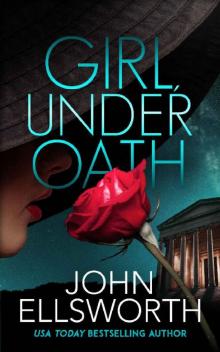 Girl, Under Oath (Michael Gresham Series)
Girl, Under Oath (Michael Gresham Series)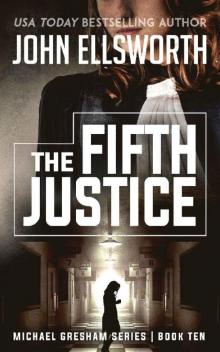 The Fifth Justice (Michael Gresham Legal Thrillers Book 10)
The Fifth Justice (Michael Gresham Legal Thrillers Book 10)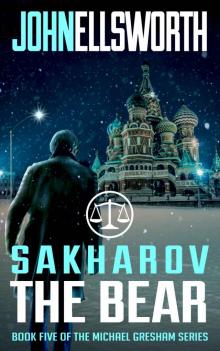 Michael Gresham (Book 5): Sakharov the Bear
Michael Gresham (Book 5): Sakharov the Bear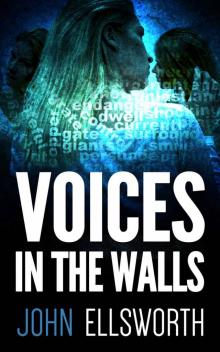 Voices In The Walls: A Psychological Thriller (Michael Gresham Series)
Voices In The Walls: A Psychological Thriller (Michael Gresham Series)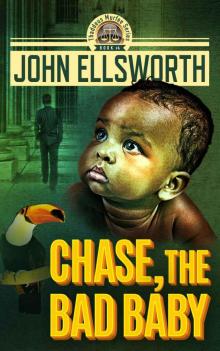 Chase, the Bad Baby: A Legal and Medical Thriller (Thaddeus Murfee Legal Thriller Series Book 4)
Chase, the Bad Baby: A Legal and Medical Thriller (Thaddeus Murfee Legal Thriller Series Book 4)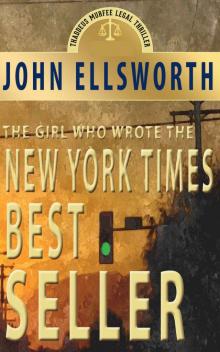 The Girl Who Wrote The New York Times Bestseller: A Novel (Thaddeus Murfee Legal Thrillers Book 8)
The Girl Who Wrote The New York Times Bestseller: A Novel (Thaddeus Murfee Legal Thrillers Book 8)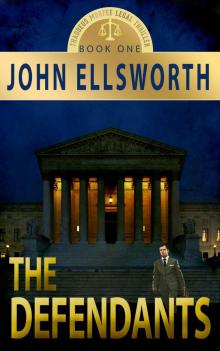 The Defendants: Crime Fiction & Legal Thriller (Thaddeus Murfee Legal Thriller Series Book 1)
The Defendants: Crime Fiction & Legal Thriller (Thaddeus Murfee Legal Thriller Series Book 1)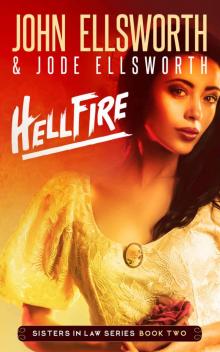 Hellfire (Sisters In Law Book 2)
Hellfire (Sisters In Law Book 2)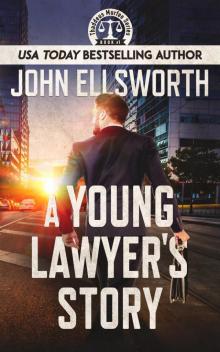 A Young Lawyer's story
A Young Lawyer's story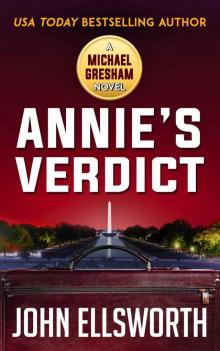 Annie's Verdict (Michael Gresham Legal Thrillers Book 6)
Annie's Verdict (Michael Gresham Legal Thrillers Book 6)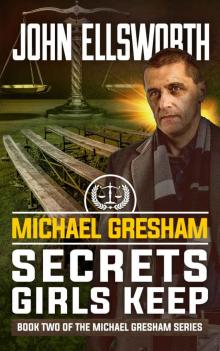 Legal Thriller: Michael Gresham: Secrets Girls Keep: A Courtroom Drama (Michael Gresham Legal Thriller Series Book 2)
Legal Thriller: Michael Gresham: Secrets Girls Keep: A Courtroom Drama (Michael Gresham Legal Thriller Series Book 2)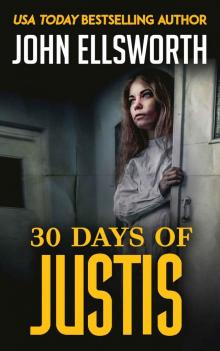 30 Days of Justis
30 Days of Justis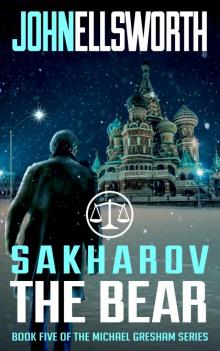 Sakharov the Bear (Michael Gresham Legal Thrillers Book 5)
Sakharov the Bear (Michael Gresham Legal Thrillers Book 5)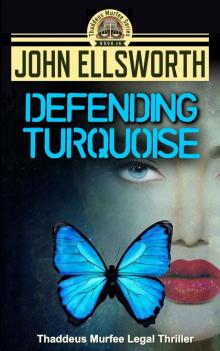 Defending Turquoise (Thaddeus Murfee Legal Thriller Series Book 5)
Defending Turquoise (Thaddeus Murfee Legal Thriller Series Book 5)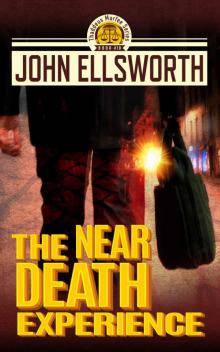 The Near Death Experience (Thaddeus Murfee Legal Thriller Series Book 10)
The Near Death Experience (Thaddeus Murfee Legal Thriller Series Book 10)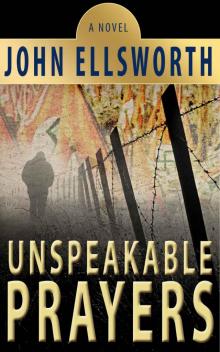 Unspeakable Prayers: WW II to Present Day (Thaddeus Murfee Series of Legal Thrillers)
Unspeakable Prayers: WW II to Present Day (Thaddeus Murfee Series of Legal Thrillers)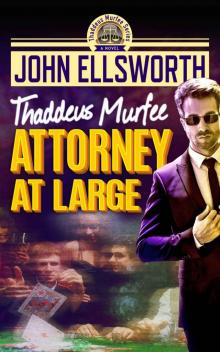 Attorney at Large (Thaddeus Murfee Legal Thriller Series Book 3)
Attorney at Large (Thaddeus Murfee Legal Thriller Series Book 3)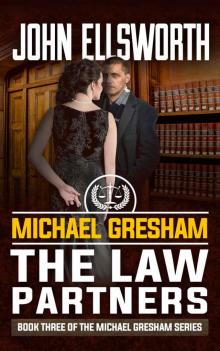 The Law Partners (Michael Gresham Legal Thriller Series Book 3)
The Law Partners (Michael Gresham Legal Thriller Series Book 3)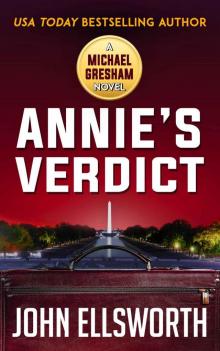 Annie's Verdict
Annie's Verdict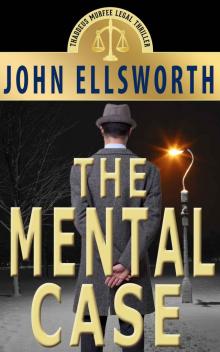 The Mental Case (Thaddeus Murfee Legal Thriller Series Book 6)
The Mental Case (Thaddeus Murfee Legal Thriller Series Book 6)